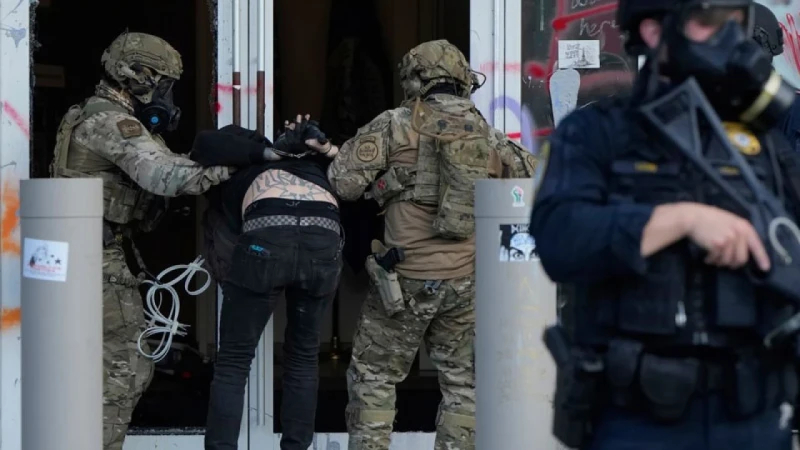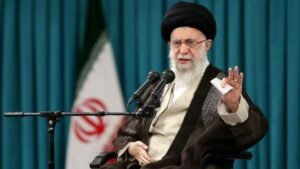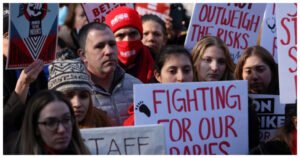Federal Judge Blocks National Guard Deployment in Portland Amid Tensions

A federal judge has temporarily blocked the Trump administration from deploying National Guard troops to Portland, Oregon, following the president’s announcement to send military forces to the city. The move was intended to protect federal facilities, including Immigration and Customs Enforcement (ICE), amid protests.
The ruling by District Judge Karin Immergut, nominated by former President Trump, stated that Oregon and the city of Portland were likely to succeed in their claim that the president overstepped constitutional authority and violated the Tenth Amendment. The judge noted that the protests in Portland did not rise to the level of danger requiring military intervention and could be handled by local law enforcement.
The restraining order temporarily returns control of the National Guard to Governor Tina Kotek and is set to expire on October 18, with state officials planning to request an extension. The administration has announced plans to appeal the decision to the Ninth Circuit Court of Appeals.
Local leaders welcomed the ruling, emphasizing that the city has remained orderly and that there was no justification for federal troops. Mayor Keith Wilson stated that no additional federal forces were necessary, while Governor Kotek described the decision as a positive reinforcement of the rule of law.
The decision comes as part of broader federal actions in other cities, including Chicago, where President Trump authorized 300 National Guard troops to protect federal officers and assets. Illinois Governor J.B. Pritzker criticized the federal order as unnecessary and un-American. Protests near ICE facilities in both Portland and Chicago have intensified in recent weeks, though local officials maintain that the demonstrations have largely been peaceful.
The Portland case highlights ongoing legal disputes over the president’s authority to federalize state troops for domestic law enforcement. Oregon officials argue that the use of the National Guard for civilian policing outside the narrow circumstances allowed by law—such as rebellion or foreign invasion—exceeds presidential powers.
Meanwhile, protests and federal actions continue to spark tensions in both cities, with ongoing arrests and investigations into federal responses. Authorities emphasize the importance of balancing public safety with constitutional protections and state oversight.






